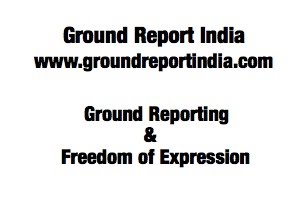India
On variability of hydrological wet season, seasonal rainfall and rainwater potential of river basins in India (using rainfall data over 1813-2006) - An IITM technical paper
Posted on 10 May, 2010 09:12 PMThe paper discuses climatological and fluctuation features of important parameters of the Hydrological Wet Season (HWS), viz. starting and ending dates, duration, seasonal rainfall/rainwater and surplus rainfall/rainwater potential individually for the eleven major and thirty six minor river basins, the West Coast Drainage System (WCDS) and the rest of the country. It is based on reliable monthly rainfall data from a well spread network of three hundred and sixteen rain gauge stations from 1813 upto 2006.
The paper observes that the average period of the HWS is in close conformity with the southwest Monsoonal Rainy Season (MRS) over the basins in the Core Monsoon Rainfall Regime (CMRR). In the Mixed Monsoon Rainfall Regime (MMRR) covering south peninsula, northeast and extreme north, the HWS is of longer duration compared to the MRS due to extra-monsoonal rainfall over there. The mean starting date of the HWS is May 30, ending October 11 and the duration is 135 days for the entire country.
Water jobs viz DevNetJobs dated May 5, 2010
Posted on 05 May, 2010 11:35 AMContent Courtesy:DevNetJobsIndia
- Dialogue Coordinator
The Trans-boundary Water Dialogue (TWD) Project
Location: New Delhi
Last Date: May 12, 2010
Community-led Total Sanitation newsletter for May 2010
Posted on 05 May, 2010 11:07 AM
Community Led Total Sanitation (CLTS) is an innovative methodology for mobilising communities to completely eliminate open defecation (OD).
Urban Population and WatSan: A brief status report by WaterAid (2009)
Posted on 03 May, 2010 04:44 PMThis document by WaterAid India, India highlights the poor water and sanitation situation in the urban slums in India, in the context of rapid urbanisation and the increase in the number of slums and slum dwellers in the cities.
India Water Portal looking for a Drupal consultant
Posted on 03 May, 2010 04:42 PMWe are currently seeking the services of a seasoned Drupal Reource (individual/company) to join our team. The Resource (individual/company) will serve as the chief technology consultant, assisting with the design, development, and implementation of changes to the portal related websites, including graphics and functionality.
An article on Ganga in Ground Report India by Dr. Amarnath Giri
Posted on 03 May, 2010 11:27 AM
Credits to: Ground Report India April-2010-Edition
Hindus have always believed that water from India's Ganges River has extraordinary powers. The Indian emperor Akbar called it the "water of immortality" and always traveled with a supply. The British East India Co. used only Ganges water on its ships during the three-month journey back to England, because it stayed "sweet and fresh."
Indians have always claimed it prevents diseases, but are the claims wives' tales or do they have scientific substance?
Bihar needs to build 6,900 toilets a day to keep promise of total sanitation - A survey report by WaterAid (2009)
Posted on 01 May, 2010 04:51 PMThis brief report highlights the findings of an evaluation study conducted by WaterAid, India of the Total Sanitation Campaign (TSC), a national programme in India that ensures sanitation facilities in rural areas to eradicate open defecation. The study was conducted in the five states of Bihar, Chhattisgarh, Tripura, Karnataka and Haryana. This document highlights the findings of the evaluation study in the state of Bihar.
Robust watershed modeling options for participative governance - A Water Governance Project review paper
Posted on 30 Apr, 2010 06:01 PMThis technical review paper puts forward robust watershed modeling options as an instrument of participative governance in the water sector, where there is common agreement among stakeholders on assessment of resource and on the manner in which it is to be utilized. Reasonably validated estimates are developed based on existing data and different scenarios are explored. The models offer a scope of assessing the potential changes in watershed hydrology and water availability due to watershed development projects, and can be used as a basis for planning and monitoring.
Capacity Building for Integrated Water Resources Management (Cap-Net) - United Nations Development Programme (UNDP)
Posted on 30 Apr, 2010 11:47 AM![]() Cap-Net is an international network for capacity building in Integrated Water Resources Management (IWRM). It includes a partnership of autonomous international, regional and national institutions and networks committed to capacity building in the water sector.
Cap-Net is an international network for capacity building in Integrated Water Resources Management (IWRM). It includes a partnership of autonomous international, regional and national institutions and networks committed to capacity building in the water sector.
The Cap-Net website has a number of resources on water management issues and includes:
Eye of the storm: Integrated solutions to the climate, agriculture and water crisis - A brief by IATP
Posted on 28 Apr, 2010 08:20 PMThis brief by Institute for Agriculture and Trade Policy (IATP) acknowledges that climate, water and agriculture are the three important factors that are facing severe crisis in recent years and argues that it is necessary to recognise that these three factors cannot be viewed in isolation, but as converging, interdependent and interconnected factors.
The convergence of these three factors means that solutions to the crisis cannot be found in isolation, but need to be complementary, that move away from dominant industrial agricultural models, to models that are sustainable and just.